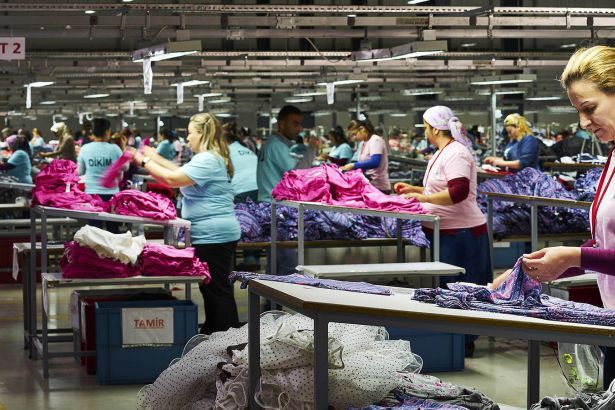
Restoring the dignity of work
Answering the rage: Restoring the Dignity of Work
Here Tim Thorlby explores the reasons behind the political instability of the past few years, suggesting that restoring the dignity of work is necessary to rebuild broken trust. He proposes how we can all be a part of the solution, as churches, consumers and as citizens.
“You are a stranger in your own land. You do not recognise yourself in how others see you. It is a struggle to feel seen and honoured. And to feel honoured you have to feel – and feel seen as – moving forward. But through no fault of your own and in ways that are hidden, you are slipping backward.”
These thoughts are from present-day, working-class America but they could just as be from any number of ‘left behind’ communities in the UK.
Many countries, including our own, have been turned upside down in the last few years by a surge of ‘populist’ rage. Many explanations have been offered. The more thoughtful ones recognise that this political energy is not just a passing phase or the product of ‘great ignorance’ but something deep rooted which has been building for a while – and which must be understood and addressed.
In his recently published book, The Tyranny of Merit (from which the above quote is drawn), the author Michael Sandel offers his own explanation. He charts how the last 40 years of globalisation and financial deregulation, together with an uncritical acceptance of a university education as the primary answer to social mobility, have ended up leaving millions of people behind. This was never the intention, but it is what has happened.
He describes a situation where we have forgotten how to question the excessive rewards that are sometimes handed out in the marketplace. He says we pay too little attention to the many who lose out when the market moves on. When industries die and communities find themselves washed up, does anybody care any more? Is there anything that can be done?

This is about more than money. Of course incomes and wages matter, but we all need more than this. We want to know that our work matters – we want some sort of respect for what we do, we want self-esteem. If we find ourselves with no work at all, or are told that our work is too lowly to be worthy of much respect or pay, is it any wonder that the response includes a rising sense of rage?
Sandel’s argument is that we must use our democracy to push back on the excesses of market logic and recognise that respectable, decently paid, purposeful work is essential for all – not just ‘professionals’ or a fortunate few. This change won’t just happen, we will need to make it happen.
It is an argument for a ‘living wage’ for sure, but it goes much further than this – we must find ways to restore dignity to the working conditions of millions, whose work has become insecure, de-skilled and looked down upon. We must restore decent working conditions, invest in vocational education and jobs, and learn to respect the many essential jobs that make our nation tick.
The causes of the rage we see are complex, but many of the grievances around work and recognition are legitimate and must be addressed.
We need to learn to talk again about how we manage our markets more fairly.
We need to remember that the dignity of work always matters – for everybody.
The ‘dignity of work’ is not a new idea, it is deeply embedded within traditional church teaching, reflecting the fact that everyone is made in the image of God and should be treated as such.

And there is no quick fix for this, it is probably the work of a generation to make it a reality. But if the reward is a healthier and happier democracy, isn’t it in everyone’s interests? If it means stronger communities, a more just and equal society, shouldn’t we begin today?
We can all make a start. Why not make a list of all the low paid workers who served you this week – the couriers who come to your door, the fruit pickers who harvested your apples, your office cleaners, local shop workers, perhaps social care workers if you have elderly relatives?
As consumers we can choose to buy products and services from companies which provide dignified work. Do we really want to wear clothes made by children or eat food produced under slave labour conditions? Look for the Fairtrade Mark for products from overseas. Look for the Living Wage Employer badge if buying something from the UK (the Living Wage Foundation has a database on its website of Living Wage Employers). We can also choose to support dignified work with our shopping habits each week.
Local churches can use their networks to support the dignity of work in their localarea. Most congregations include a diverse mix of people: fix a time to discuss this together – what are the experiences of those not in work or in low paid, insecure jobs? What influence do working people have within their organisations? One discussion may reveal a surprising number of possibilities for action to support dignified work locally. This is one way a church can deepen its relationships with its neighbours. Even just to recognise the importance of such workers within a church is a start – “we see you and thank you”.
As citizens we can organise, campaign and vote for positive change – the living wage, security of employment, vocational education and training, public investment in jobs. People across the political spectrum are needed to contribute to this – a fair settlement is more likely if we find common ground for action.
This issue is not going to go away – it is for our generation to address. Let the churches be at the forefront of the movement to restore dignity to working people.
Tim Thorlby
Tim Thorlby is the Managing Director of Clean for Good. You can find him on Twitter at @TimThorlby. For more information about Clean for Good, go to www.cleanforgood.co.uk and follow us at @clean4good.

Clean for Good is an ethical cleaning company for London, cleaning offices and workspaces across the city. It is a Living Wage Employer, directly employs its cleaners and also trains and manages cleaners professionally. It provides decent, dignified and fairly paid work for cleaners. Founded in a church in the City of London, it launched in 2017, has grown rapidly and is now an award-winning social business.
This article was featured in the autumn 2020 edition of the T4CG Newsletter.
